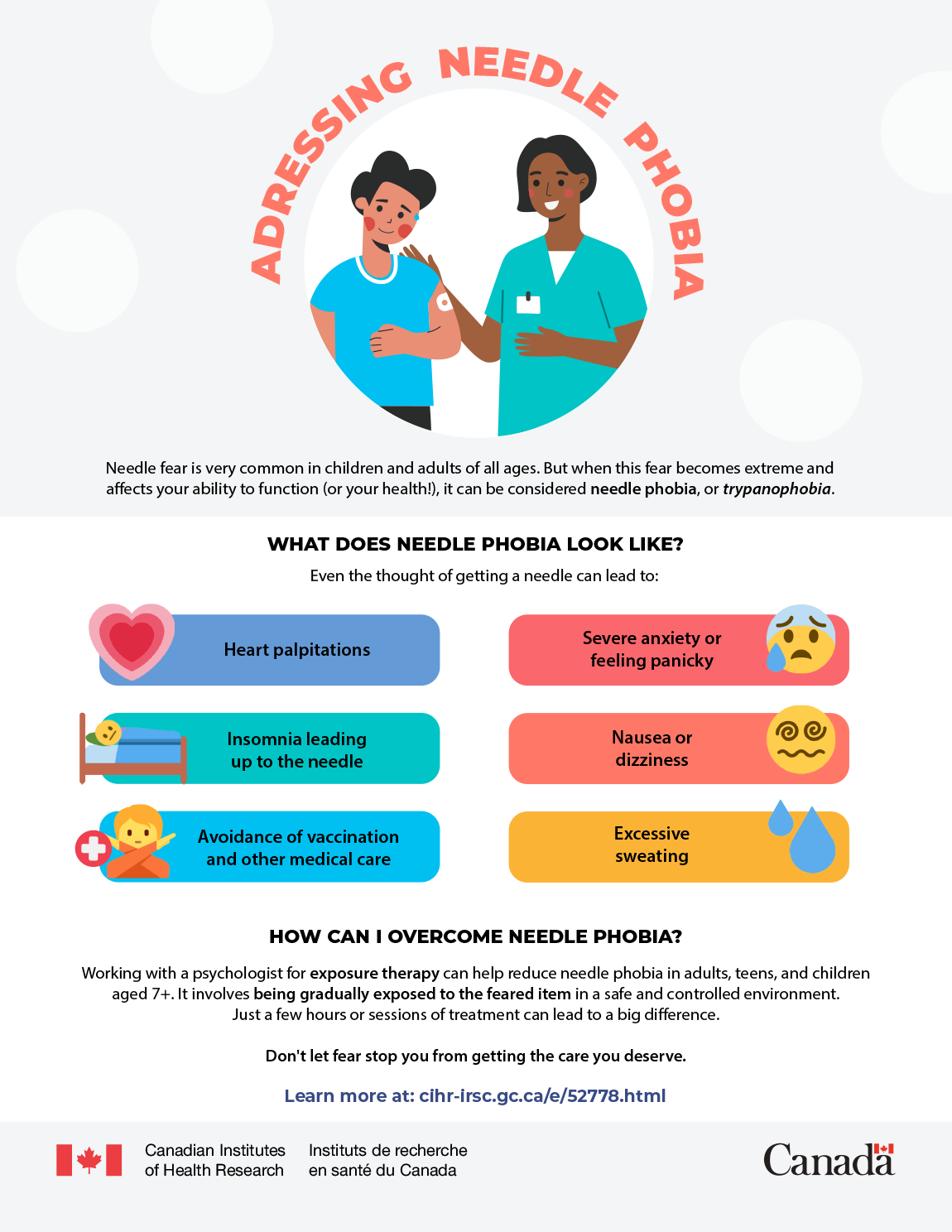Infographic: Addressing needle phobia

Long description
Addressing needle phobia
Needle fear is very common in children and adults of all ages. But when this fear becomes extreme and affects your ability to function (or your health!), it can be considered needle phobia, or trypanophobia.
What does needle phobia look like?
Even the thought of getting a needle can lead to:
- Heart palpitations
- Insomnia leading up to the needles
- Avoidance of vaccination and other medical care
- Severe anxiety or feeling panicky
- Nausea or dizziness
- Excessive sweating
How can I overcome needle phobia?
Working with a psychologist for exposure therapy can help reduce needle phobia in adults, teens, and children aged 7+. It involves being gradually exposed to the feared item in a safe and controlled environment.
Just a few hours or sessions of treatment can lead to a big difference.
Don't let fear stop you from getting the care you deserve.
Learn more about Dealing with needle pain and fear
- Date modified: